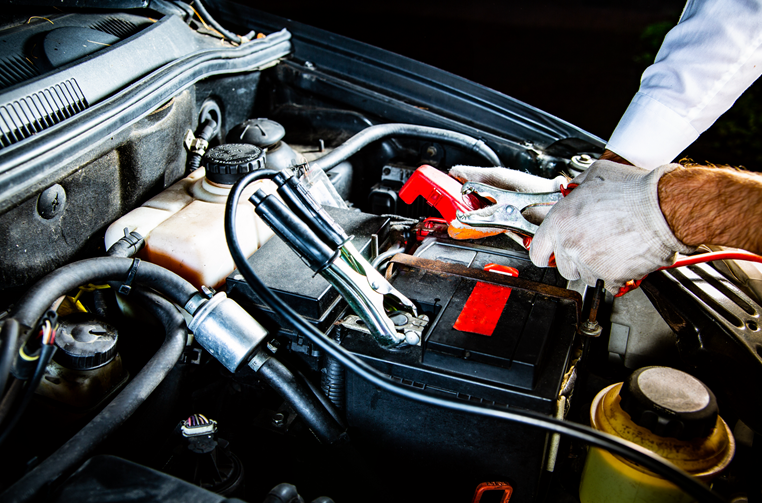Lithium Iron Phosphate Battery Pack: An Eco-Friendly and High-Performance Solution
序章
As the world continues to grapple with the issue of climate change, the need for eco-friendly solutions has become more apparent. Energy storage is one of the areas where the need for eco-friendly solutions is most pressing. Lithium iron phosphate battery packs are one of the most promising solutions to this problem. In this article, we will explore what lithium iron phosphate battery packs are, how they work, and their advantages over other types of batteries.
What are Lithium Iron Phosphate Battery Packs?
Lithium iron phosphate battery packs are a type of rechargeable lithium-ion battery. They are made by combining lithium iron phosphate (LiFePO4) as the cathode material, carbon as the anode material, and an electrolyte. The resulting battery pack is known for its high power density, long cycle life, and excellent thermal stability.
The chemistry of lithium iron phosphate battery packs is similar to that of other lithium-ion batteries. Lithium ions move from the anode to the cathode during discharge and from the cathode to the anode during charging. However, the use of lithium iron phosphate as the cathode material offers several advantages over other types of cathode materials.
Advantages of Lithium Iron Phosphate Battery Packs
1. Safety
One of the primary advantages of lithium iron phosphate battery packs is their safety. Unlike other types of lithium-ion batteries, they are highly resistant to thermal runaway, which is the phenomenon where a battery overheats and catches fire. This is due to the stable nature of the LiFePO4 chemistry, which makes it less likely to break down under high temperatures.
2. High Power Density
Lithium iron phosphate battery packs have a high power density, which means they can deliver a lot of power for their size. This makes them ideal for applications that require high power output, such as electric vehicles or power tools.
3. Long Cycle Life
Lithium iron phosphate battery packs have a long cycle life, which means they can be charged and discharged many times without degrading significantly. This makes them ideal for applications that require long-term use, such as renewable energy storage.
4. Thermal Stability
Lithium iron phosphate battery packs have excellent thermal stability, which means they can operate over a wide temperature range without suffering from performance degradation. This makes them ideal for applications in harsh environments, such as outdoor solar power systems.
5. Eco-Friendly
Lithium iron phosphate battery packs are eco-friendly because they contain no toxic metals, such as cobalt or nickel, which are commonly used in other types of batteries. They also have a lower carbon footprint than other types of batteries because they can be recycled more easily.

Applications of Lithium Iron Phosphate Battery Packs
Lithium iron phosphate battery packs have a wide range of applications, including:
1. Electric Vehicles
Lithium iron phosphate battery packs are widely used in electric vehicles because of their high power density and long cycle life.
2. Renewable Energy Storage
Lithium iron phosphate battery packs are ideal for storing energy from renewable sources because of their long cycle life and excellent thermal stability.
3. Backup Power
Lithium iron phosphate battery packs are widely used as backup power sources for critical infrastructure because of their safety and reliability.
4. Power Tools
Lithium iron phosphate battery packs are ideal for powering cordless power tools because of their high power density and long cycle life.
結論
Lithium iron phosphate battery packs are an eco-friendly and high-performance solution to the problem of energy storage. They offer several advantages over other types of batteries, including safety, high power density, long cycle life, thermal stability, and eco-friendliness. They have a wide range of applications, including electric vehicles, renewable energy storage, backup power, and power tools. As technology continues to advance, lithium iron phosphate battery packs are likely to become even more widely used in the future.
-
 When it comes to powering your boat's engine, reliability is of utmost importance. Whether you are setting sail for a leisurely day on the water or embarking on an exciting fishing adventure, having a dependable marine starting battery is essential. This article will delve into the importance of a marine starting battery and highlight its benefits in ensuring a smooth...続きを読む
When it comes to powering your boat's engine, reliability is of utmost importance. Whether you are setting sail for a leisurely day on the water or embarking on an exciting fishing adventure, having a dependable marine starting battery is essential. This article will delve into the importance of a marine starting battery and highlight its benefits in ensuring a smooth...続きを読む -
 Introduction In recent years, the popularity of lithium starter batteries has increased significantly due to their numerous advantages over traditional lead-acid batteries. Lithium starter batteries are lightweight, compact, and have a higher energy density, making them the ideal choice for high-performance vehicles. In this article, we will discuss the advantages of a lithium starter battery. Advantages of a...続きを読む
Introduction In recent years, the popularity of lithium starter batteries has increased significantly due to their numerous advantages over traditional lead-acid batteries. Lithium starter batteries are lightweight, compact, and have a higher energy density, making them the ideal choice for high-performance vehicles. In this article, we will discuss the advantages of a lithium starter battery. Advantages of a...続きを読む -
 Modern technology has revolutionized every aspect of our lives from communication to transportation, and power supply is no exception. In recent times, more and more people are turning to lithium batteries as an alternative source of power supply. One such battery that is gaining popularity is the 12V 200Ah LiFePO4 lithium battery. In this article, we will explore the advantages...続きを読む
Modern technology has revolutionized every aspect of our lives from communication to transportation, and power supply is no exception. In recent times, more and more people are turning to lithium batteries as an alternative source of power supply. One such battery that is gaining popularity is the 12V 200Ah LiFePO4 lithium battery. In this article, we will explore the advantages...続きを読む -
 In today's fast-paced world, having a reliable and efficient 24V on-board battery charger for your vehicle is essential. Whether you own a truck, RV, or boat, ensuring that your battery is always powered up and ready to go is crucial for a seamless and hassle-free experience. In this article, we will explore the importance of having a reliable on-board battery...続きを読む
In today's fast-paced world, having a reliable and efficient 24V on-board battery charger for your vehicle is essential. Whether you own a truck, RV, or boat, ensuring that your battery is always powered up and ready to go is crucial for a seamless and hassle-free experience. In this article, we will explore the importance of having a reliable on-board battery...続きを読む -
 Introduction: In recent years, there has been a growing demand for high-performance batteries that can provide extended power for various applications. The High Capacity 12V LiFePO4 Battery, with its impressive 100Ah power, has emerged as a reliable solution. This article aims to explore the features and benefits of this advanced battery technology, highlighting its potential applications and advantages. 1....続きを読む
Introduction: In recent years, there has been a growing demand for high-performance batteries that can provide extended power for various applications. The High Capacity 12V LiFePO4 Battery, with its impressive 100Ah power, has emerged as a reliable solution. This article aims to explore the features and benefits of this advanced battery technology, highlighting its potential applications and advantages. 1....続きを読む -
 近年、効率的で信頼性の高い電力貯蔵ソリューションに対する需要が高まっています。再生可能エネルギー源の出現とポータブル電源のニーズの高まりにより、高度なバッテリー技術の開発が行われました。そのようなテクノロジーの 1 つが高容量 12V LiFePO4 バッテリーで、従来の鉛蓄電池に比べて多くの利点があります。この記事の目的は...続きを読む
近年、効率的で信頼性の高い電力貯蔵ソリューションに対する需要が高まっています。再生可能エネルギー源の出現とポータブル電源のニーズの高まりにより、高度なバッテリー技術の開発が行われました。そのようなテクノロジーの 1 つが高容量 12V LiFePO4 バッテリーで、従来の鉛蓄電池に比べて多くの利点があります。この記事の目的は...続きを読む -
 As the demand for sustainable transportation options continues to grow, electric scooters have become increasingly popular around the world. Offering a convenient and eco-friendly alternative to traditional gasoline-powered scooters, electric scooters rely on high-performance batteries to deliver power and efficiency. In this article, we will explore the power and performance of electric scooter batteries, shedding light on the technology behind...続きを読む
As the demand for sustainable transportation options continues to grow, electric scooters have become increasingly popular around the world. Offering a convenient and eco-friendly alternative to traditional gasoline-powered scooters, electric scooters rely on high-performance batteries to deliver power and efficiency. In this article, we will explore the power and performance of electric scooter batteries, shedding light on the technology behind...続きを読む

